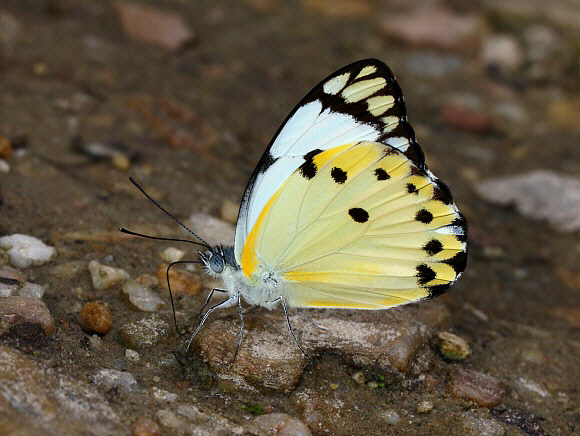
Introduction
The genus Belenois comprises of about 30 species, of which 25 occur in the Afrotropical region.
Males of most species are pure white, with well defined black markings, while females usually have browner and more suffused markings, on a dull white or creamy ground colour.
The most widespread species is aurota which is found across most of Africa, Arabia and the Indian subcontinent. In Africa it sometimes swarms in thousands, and can be found in almost any habitat.
Belenois calypso is not migratory in behaviour, but disperses thinly over a wide area. It is found across much of sub-Saharan Africa from Senegal to Congo, Angola and Malawi, but it’s range does not extent to the East African coast.
Habitats
This butterfly can be found in many habitats, ranging from arid Acacia scrub to primary rainforest. It is most frequent however in secondary forest, and in woodland / savannah mosaics.
Lifecycle
The larval foodplants include Capparis, Cadaba, Maerua and Ritchiea ( Capparaceae ).
Adult behaviour
Males are seen in much greater numbers than females. They commonly settle on paths and forest roads to imbibe mineralised moisture, often amidst aggregations of Eurema, Mylothris and Appias, with the Eurema Grass Yellows invariably outnumbering the other species. Females are more often observed in flight, when seen visiting flowers, or when ovipositing.
